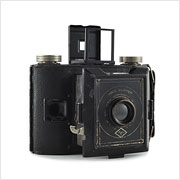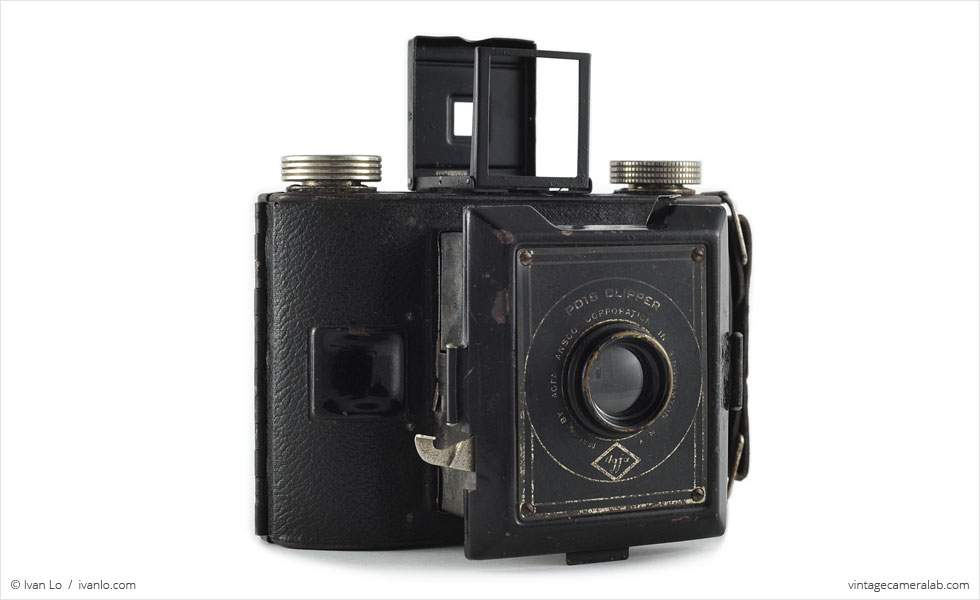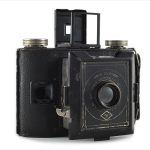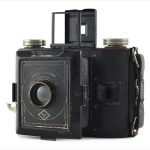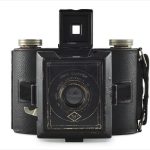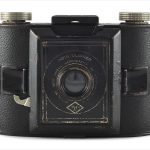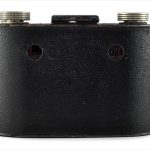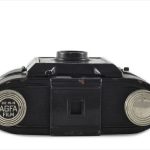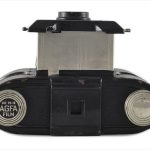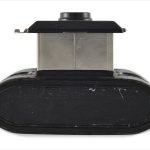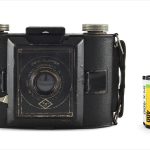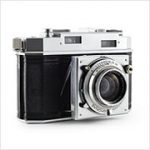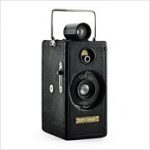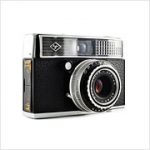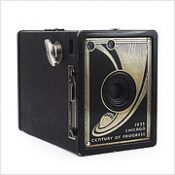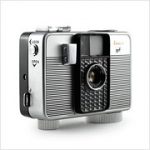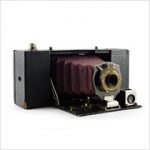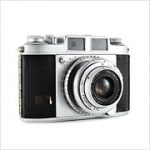Agfa PD16 Clipper Specifications
| Manufacturer: | Agfa-Ansco |
| Origin: | Germany |
| Made in: | Binghamton, NY, USA |
| Introduced: | 1928 |
| Type: | Viewfinder |
| Format: | 616 Film |
| Dimensions: | 13.5 x 9 x 5.4 cm (closed) |
| 13.5 x 12.3 x 8.3 cm (open) |
Agfa PD16 Clipper Overview
The Agfa PD16 Clipper is one of the very first cameras produced by German company Agfa after its acquisition of the American company Ansco, thus forming Agfa-Ansco. Like the early offerings of many photographic company mergers, this camera was sold under both brands as the Agfa PD16 Clipper and the Ansco Clipper although it appears that they were all made in the very same American factory in Binghamton, NY.
The Clipper uses 616 film, a now discontinued medium format film. Although it is not a conventional folding camera, the Clipper employs a lens that must first be expanded before use. To do so, simply grab the two extended posts on either side of the lens plate and pull outward until two metal tabs click into place and lock the lens into shooting position. The lens itself is very simple and is pre-focused to cover everything from six feet to infinity. The self-cocking shutter is triggered by the small silver-colored lever next to the lens and has two speeds: 1/60 seconds and, if you pull out the small metal tab above the lens, bulb (shutter stays open as long as the shutter button is depressed). For composition, there is a flip-up viewfinder in the middle of the top plate positioned between the film advance and rewind knobs.
I bought the Clipper from a very nice lady who was selling her son’s camera collection on his behalf. After seeing the for sale ad online, my original intention was to only buy three cameras: a Spartus 120, a M.I.O.M. Photax III, and this Agfa PD16 Clipper but after she dug up some more cameras from her basement, I ended up buying a total of six including the Polaroid Big Shot.
Find your very own Agfa PD16 Clipper on eBay.
McKeown, James M. and Joan C. McKeown’s Price Guide to Antique and Classic Cameras, 2001-2002. (Grantsburg, WI, USA: Centennial Photo Service, 2001), p 36-37.
